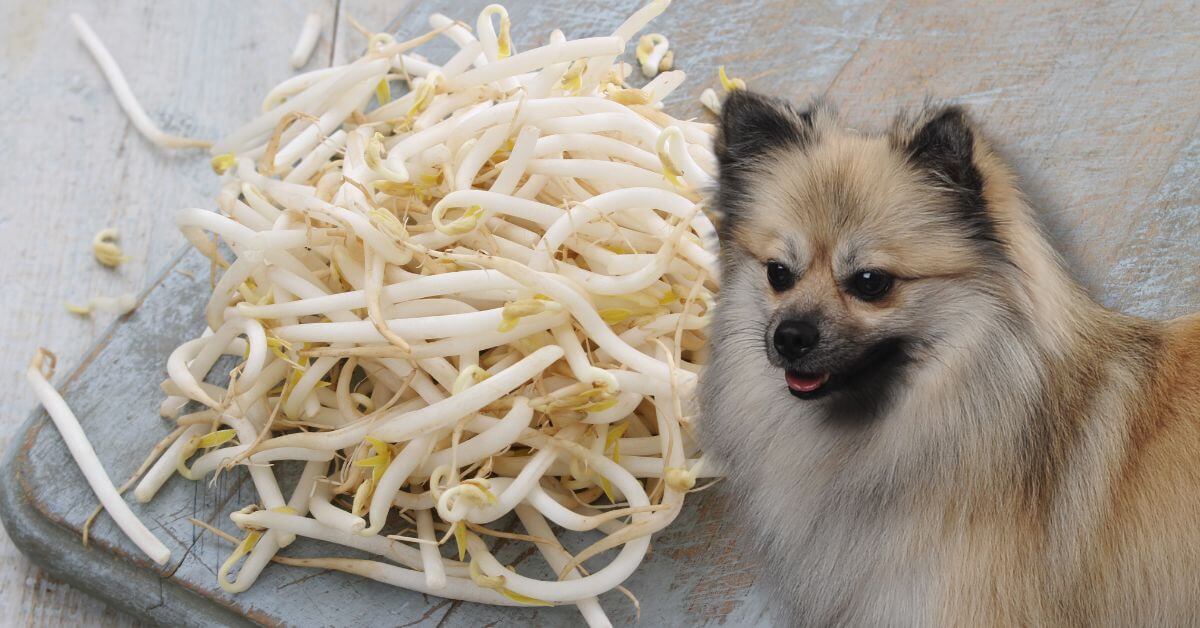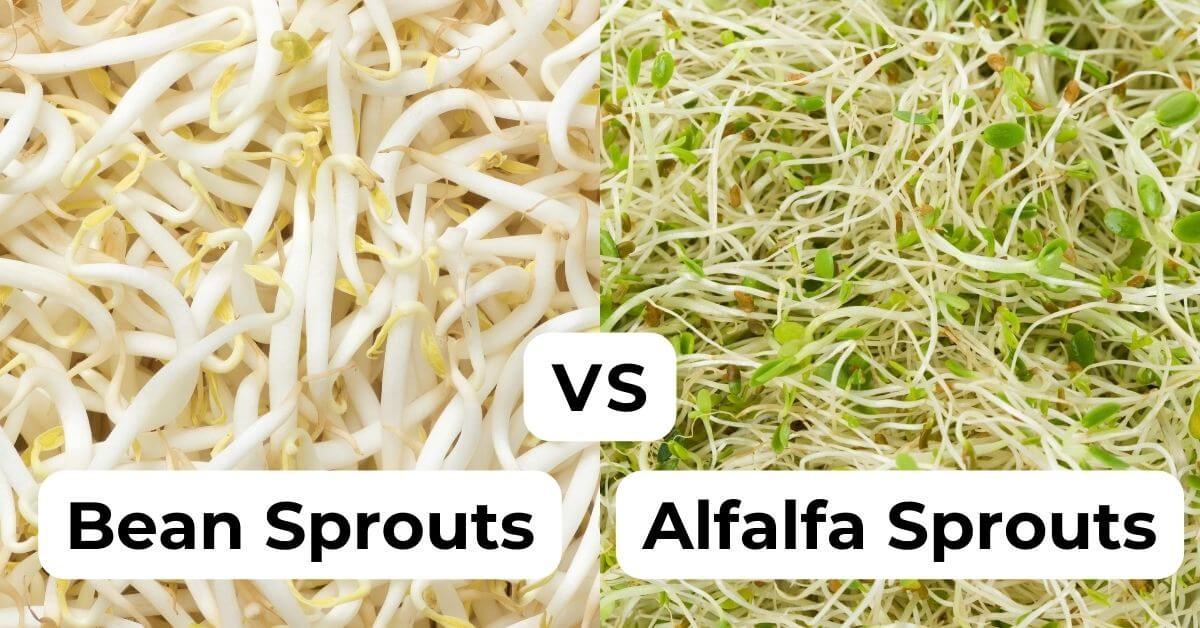Can Dogs Eat Bean Sprouts?
Yes, dogs can eat bean sprouts! I love this topic as I eat a lot of fresh greens and make salads at least once per day, and I love giving Ricco some fresh lettuce and bean sprouts, too! I have always been curious about this topic since bean sprouts are honestly a bit weird and often seem moldy (at least to me, all sprouts are weird!). So I did my research, and these crunchy little veggies are a great addition to both human and dog diets. I was right about that mold, so I’ll add a tip on how to wash them below and cite a source so you can read about it as well.

Bean sprouts are rich in fiber and healthy nutrients, and fiber is super important for dogs as it helps keep their digestive system and everything running smoothly. This is also good to know if you have a chubby dog- most vets recommend increasing fiber intake as it can help with weight management and improve digestive function and immune response. However, like with any fiber source, it’s essential not to overdo it. Too much fiber can lead to stinky gas or diarrhea. So, a small handful of bean sprouts now and then can be a healthy treat. Let’s explore more and see what good nutrients you may want to know about and what the deal is with fiber intake.
Can dogs have raw bean sprouts?
Yes, dogs can have raw bean sprouts! These sprouts are a nutritious addition to their diet. Here are some of the key nutrients found in mung bean sprouts and how they compare to what’s typically found in premium dog kibbles for adult dogs:
See, it may be beneficial for your dog to snack on mung bean sprouts! They can complement the nutrients in their regular kibble, providing a fresh and crunchy treat for their health.
What kind of sprouts are safe for dogs: mung bean vs alfalfa sprouts

The most common sprouts are mung bean sprouts and alfalfa sprouts. Mung bean sprouts, which have round yellow heads. They come from sprouting mung beans and are safe for dogs to eat. We usually use them when making Asian stir-fries. In contrast, alfalfa sprouts contain coumarin and vitamin K, acting as anti-coagulants, so you must never give alfalfa sprouts to dogs with anemia. Additionally, their saponin content can cause gastrointestinal issues, such as nausea and gastritis, and phytoestrogens in alfalfa sprouts can be troublesome for dogs with endocrine system issues. For your dog’s safety, always stick to mung bean sprouts.
How to give your dogs sprouts: raw vs cooked
Both raw and cooked sprouts are fine for dogs, but there are a few things to keep in mind.
Cooked sprouts: Sprouts are cultivated in a damp environment, which can be an ideal breeding ground for bacteria, mold, and yeast (yuck!). Cooking them reduces the risk of your dog encountering any harmful bacteria, making them safer to eat.
Raw sprouts: Raw sprouts can go bad quickly, so it’s essential to consume them fresh. I never buy them at a discount price close to their due date and always make sure to eat them the same day I purchase them. When I use them, I give some to my dog, and we share them fresh.
Washing sprouts: It’s generally okay to wash bean sprouts with a solution of baking soda and vinegar (diluted) and then rinse with cold water to reduce potential bacteria. This method can help ensure that raw sprouts are safer for both you and your dog to eat.
Can I give my dog any sprouts?
Yes, there are plenty of other types of (bean) sprouts available that are fine for your dog to eat. Many supermarkets in the United States carry a variety of these sprouts. Stores like Whole Foods, Trader Joe’s, and local farmers’ markets often have them available. Additionally, some famous restaurants include sprouts in their dishes. For instance, Asian restaurants might use mung bean sprouts in stir-fries and ramen, while health-focused eateries like Sweetgreen might incorporate various sprouts in their salads. Here’s a breakdown of the three most common sprouts in the United States that are completely safe for dogs and what they taste like:
Remember that all sprouts should be fed in moderation. They’re healthy, but to avoid giving too much of a good thing, use them as a topping or snack, not a full meal.
Love, life and fur forever!
FAQs
Can dogs have raw bean sprouts?
Yes, dogs can have raw bean sprouts! They are a nutritious addition to their diet, providing essential vitamins and minerals. Just make sure they are fresh, as sprouts can go bad quickly. Always wash them thoroughly to reduce any potential bacteria.
How to cook bean sprouts for dogs?
To cook bean sprouts for dogs, rinse them thoroughly under cold water, then boil for 1-2 minutes until they are slightly tender. Drain and let them cool completely before serving. This helps eliminate any bacteria and makes them easier for your dog to digest.